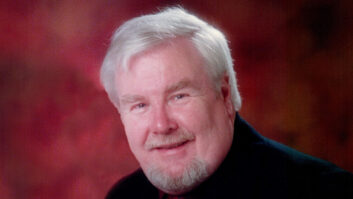
Pete Seeger at age 88, at the Clearwater Festival 2007.
Photo: Anthony Pepitone/Creative Commons
The news of folk legend Pete Seeger’s death on Monday, January 27, threw the music community into a state of mourning, as news outlets packed their Twitter feeds with links to obituaries, reflections and old articles commemorating Seeger’s contributions to the music world. Seeger, labeled as a “banjo picking troubadour” and political activist, played a vital role in the folk community, along with the political advocacy for civil rights and peace.
Seeger’s work also veered into environmental preservation, leading him to co-found the Clearwater Festival (also known as The Great Hudson River Revival festival), held annually at Croton Point Park in Croton-On-Hudson, NY. This festival brings many well-known folk artists, including Janis Ian, Arlo Guthrie and Tom Paxton, to perform and help raise money for the Hudson River Sloop Clearwater, Inc., a non-profit dedicated to help with the environmental research, education and advocacy to preserve and protect the Hudson River. The festival welcomes over 15,000 people annually.
Born in 1919, Seeger grew up influenced by folk music, and after studying at Harvard University for two years, dropped out and moved to New York City to work at the Archive of American Folk Song at the Library of Congress. Seeger was a member of the folk band, The Weavers, until the 1950s when he was famously blacklisted for his association with the Communist Party, and in 1957 was indicted on 10 counts of contempt of Congress.
Seeger was also instrumental during the folk revival in the 1950s and ‘60s, becoming a mentor for Bob Dylan, Don McLean and Bernice Johnson Reagon. He helped found the Newport Folk Festival in 1959, and in 1965 was one of the musicians offended by Bob Dylan’s ‘electric’ performance.
Among Seeger’s most famous songs were “We Shall Overcome” “If I Had a Hammer,” “Where Have All the Flowers Gone,” and the Weavers’ version of Lead Belly’s “Goodnight Irene.” Seeger was inducted into the Rock and Roll Hall of Fame in 1996, and continued to perform at special events up until his death.
According to his grandson, Kitama Cahill-Jackson, Seeger passed away on Monday, January 27, 2014, at the New York Presbyterian Hospital, leaving behind his legacy of bringing change to the world through music. He was 94.
“My job,” Seeger told the New York Times in 2009, “is to show folks there’s a lot of good music in this world, and if used right, it may help to save the planet.”







